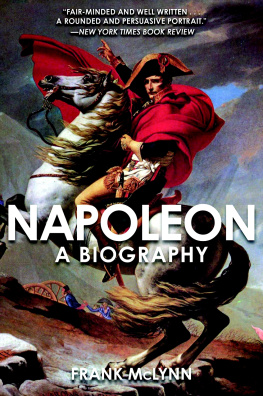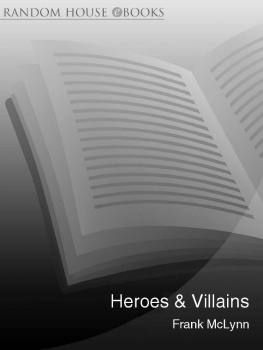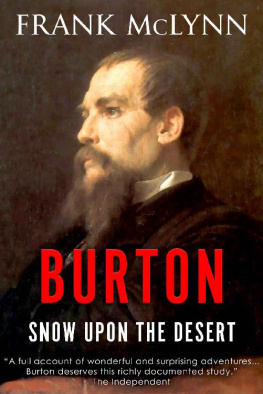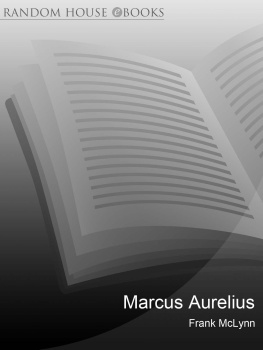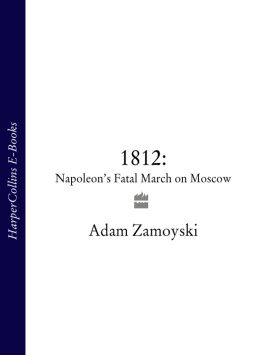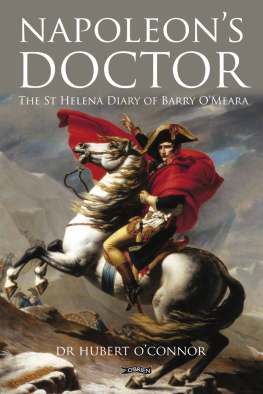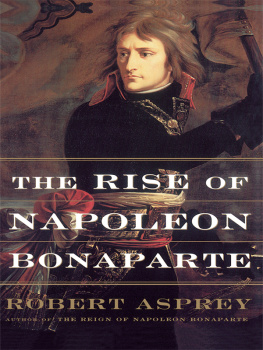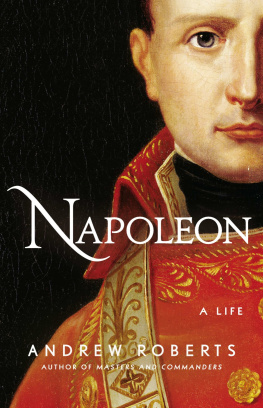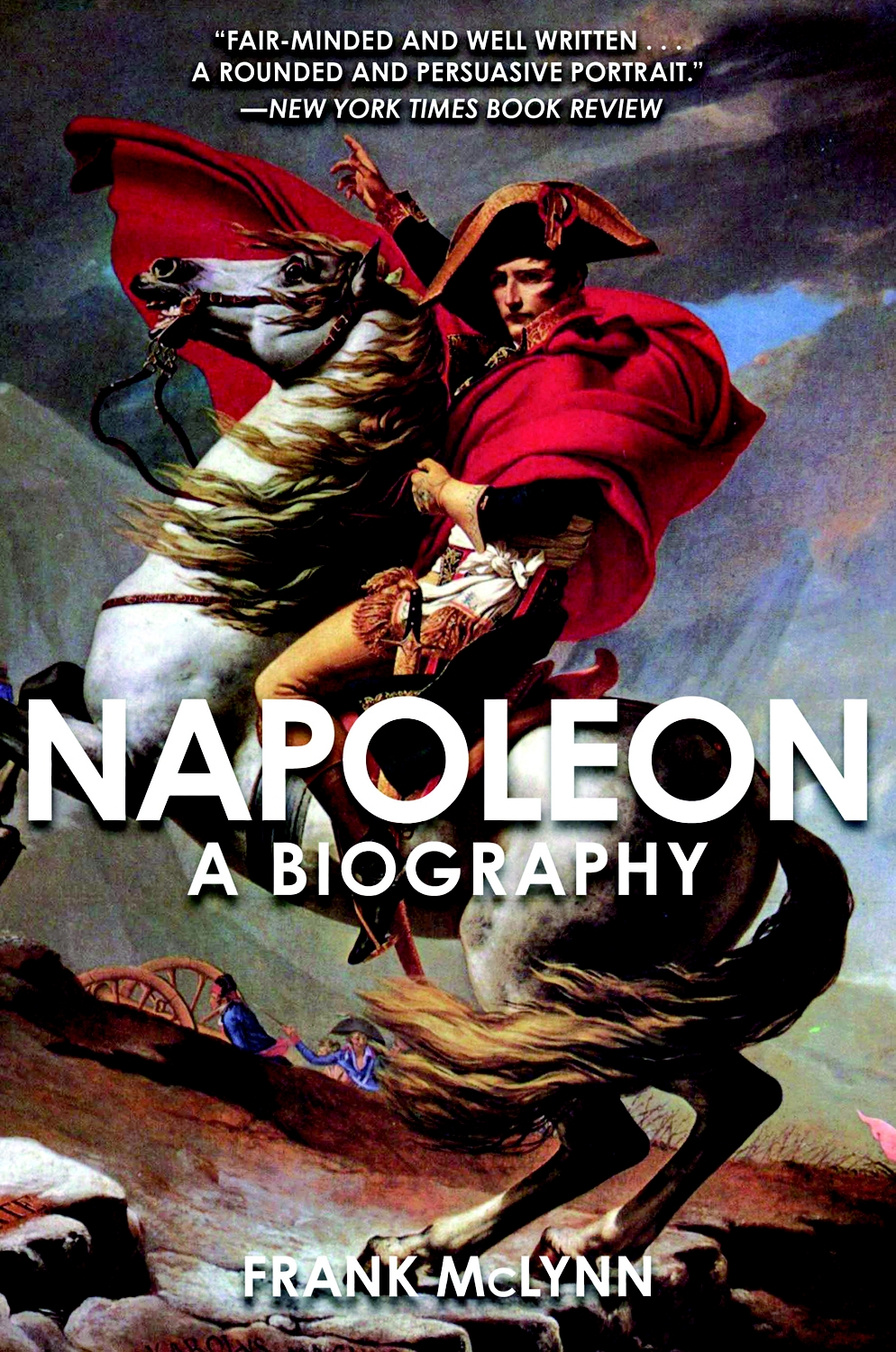CONCLUSION
Napoleons death on St Helena initially passed almost unnoticed. By a bizarre correlation, which would set those of a Jungian frame of mind thinking, all those who were most devoted to him died young and all who had betrayed him or let him down enjoyed longevity. Of the marshals, apart from those who had predeceased 1815 or were swept away that year (and almost all of those were loyal Bonapartists Berthier, Bessires, Poniatowski, Lannes, Ney), the faithful Davout, Suchet and Mortier died young or prematurely. All the marshals who had betrayed him (except for Murat who had virtually self-destructed in 1815) lived on to the fabled old age: Soult died only in 1851, Grouchy in 1847, Bernadotte in 1844, Marmont in 1852, Oudinot in 1847, MacDonald in 1844.
The same pattern can be discerned in the lives of Napoleons family and intimates. His favourite sister Pauline died at 45, lisa Bonaparte at 43, Eugne de Beauharnais at the same age, and Marie Walewska at 28. It is yet another strike against the death-by-cancer theory that in the Bonaparte family the sisters seemed to have inherited the paternal gene that determined a short life while the males inherited Letizias biological factor of longevity (she died at 86): Joseph was 76 at death, Jrme also 76, Lucien 75 and Louis 68. It need hardly be reiterated that this quartet of sibling ingrates owed everything to their brilliant brother and requited his favour with incompetence, defiance and treachery. The saddest fate was that of Napoleons son, the King of Rome who, after years as a virtual prisoner of his Austrian grandfather at Schnbrunn, died of tuberculosis at 21 in 1832.
Although she had been under duress in 1814, the weak-willed Marie-Louise owed more than the grudging tribute she paid him when news of his death on St Helena reached her: Although I never entertained any strong sentiment of any kind for him, I cannot forget that he is the father of my son, and far from treating me badly, as most people believe, he always manifested the deepest regard for me the only thing one can expect in a political marriage. So I am very affected. Although I ought to be pleased that he has ended his miserable existence, I could have wished for him many years of happiness and life, as long as it would have been far from me.
Given that all Napoleons most deadly enemies Wellington, Talleyrand, Metternich and Bernadotte lived well into their eighties, the case for Napoleon as an ill-starred individual would seem to be clinched. But the man who died almost friendless on a rocky island in the South Atlantic won a final victory in death. The power of the myth he had created on St Helena affected most of the greatest writers of the period immediately after his demise Balzac, Stendhal, Vigny, Victor Hugo, Chateaubriand, Byron, Hazlitt, Walter Scott. In the 1840s, after the Emperors body was brought back to Paris and entombed in Les Invalides, a veritable Bonaparte craze developed, which was the most important factor in Louis-Napoleon (supposedly Louiss son)s accession to power in the Second Empire.
If Napoleon became a mythical figure, this was because for once the clich was true, and the whole was greater than the sum of the parts. If aspects of Napoleons career and personality are scrutinized one by one, it is possible to mount a devastating critique. But what remains overall defies such a reductive analysis. Even Talleyrand, no friend of the Emperor, conceded this in a famous assessment made to the pro-Bonaparte Lord Holland: His career is the most extraordinary that has occurred for one thousand years... He was certainly a great, an extraordinary man, nearly as extraordinary in his qualities as in his career... He was clearly the most extraordinary man I ever saw, and I believe the most extraordinary that has lived in our age, or for many ages. Another harsh critic, Chateaubriand, summed him up as the mightiest breath of life which ever quickened human clay.
The greatness of Napoleon was that he tried to transcend human limitations and nearly succeeded; this is why his real magic is in the mythical realm rather than actuality. At a mundane level it is easy to tear Bonaparte to pieces. The pretence he made on St Helena that his lifes work was directed towards the unification of Europe has been taken seriously by enthusiasts for a European Union who should know better. He claimed that, but for his own (admitted) mistakes in Poland, Italy and above all Spain, he would have solved the problem of nationalities and cultural differences: Europe thus divided into nationalities freely formed and free internally, peace between States would have become easier: the United States of Europe would become a possibility... I wished to found a European system, a European Code of Laws, a European judiciary; there would be but one people in Europe.
This is cunningly devised ex post facto rationalization. There is nothing here about the rape of Europe by the Grand Army, the thrones illicitly grabbed for the useless Bonaparte siblings, the huge handouts and benefices given to the venal marshals, the exploitation (no other word will do) of the satellite states for the sole benefit of France. On St Helena Napoleon defended his autocracy by saying that it was a regrettable temporary necessity. This reminds one only too forcibly of the equally regrettable need for the dictatorship of the proletariat in Russia in 1917, pending the coming of the communist utopia. For Napoleon, as for Lenin, the time was not ripe, but for such men it never would be. The imperatives of charismatic leadership do not permit a benign abdication of such men in face of an era of peace and pluralistic democracy. This is not to concede the ludicrous claims of his opponents that they were fighting for freedom against tyranny. The only possible rational response when faced with the blinkered and mindless reactionary fanaticism of Alexander I, Metternich, Louis XVIII to say nothing of the unsavoury political trio of Liverpool, Castlereagh and Wellington ranged against Napoleon and his money-grubbing acolytes is a plague on both your houses.
The legend of Napoleon as political saviour can be safely laid to rest. A close analysis reveals that he has also been severely overrated as a military commander. There is much hyperbole of the greatest captain of all times variety, but this cannot survive critical scrutiny. He had two great victories, at Austerlitz and Friedland, but otherwise his record was not outstanding. He won Marengo only because of Desaix and achieved a great victory at Jena-Auerstdt only through Davout. He scraped through Wagram by the barest of margins, was fought to a standstill by the Russians at Eylau and Borodino, and lost badly at Leipzig and Waterloo. He was at his best when commanding smaller armies: it is significant that his best campaigns overall were those of Italy in 1796 97, Egypt in 1798 99 and France in 1814, when he fought a series of smaller engagements against an enemy not present in overwhelming numbers.
There can be no denying that Napoleon occupies a high rank in the military history of the ages, but he cannot be counted among the handful of peerless commanders. There is nothing in his record to compare with Alexander the Greats undefeated record in the four battles of Granicus, Issus, Gaugamela and the Hydaspes, or with Hannibals amazing quartet of victories over the Romans at Ticinus, Trebia, Trasimene and Cannae. Nor can he compare with a commander like Genghiz Khans Subudei, who was undefeated in a thirty-year career of battles in Mongolia, China, Persia, Russia and Hungary. At his peak Napoleon never faced another commander who was nearly his equal in talent. Compare this with Tamerlane, who at Angora in 1402 overwhelmed the Ottoman Turks under Bayazid, fresh from his triumph over the flower of Christian chivalry at Nicopolis.

